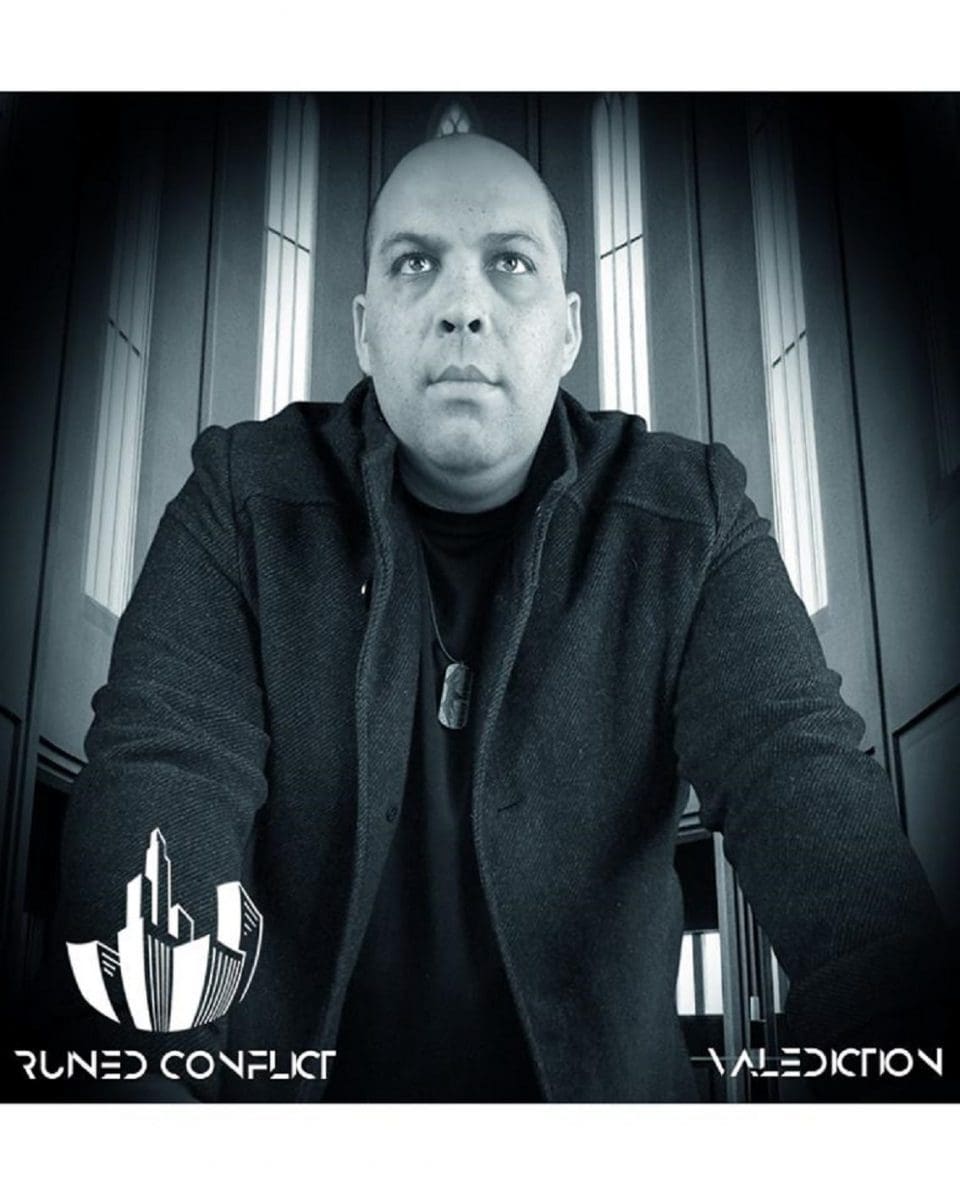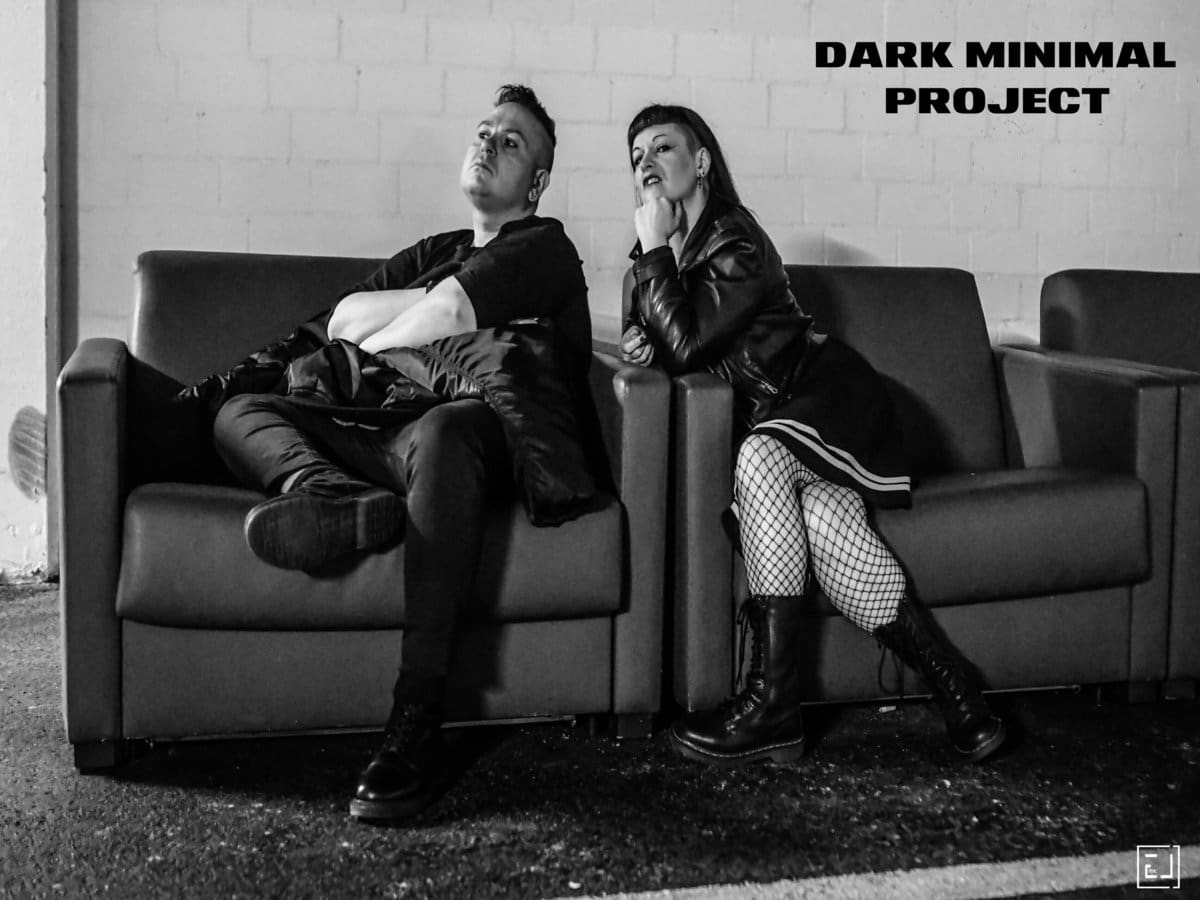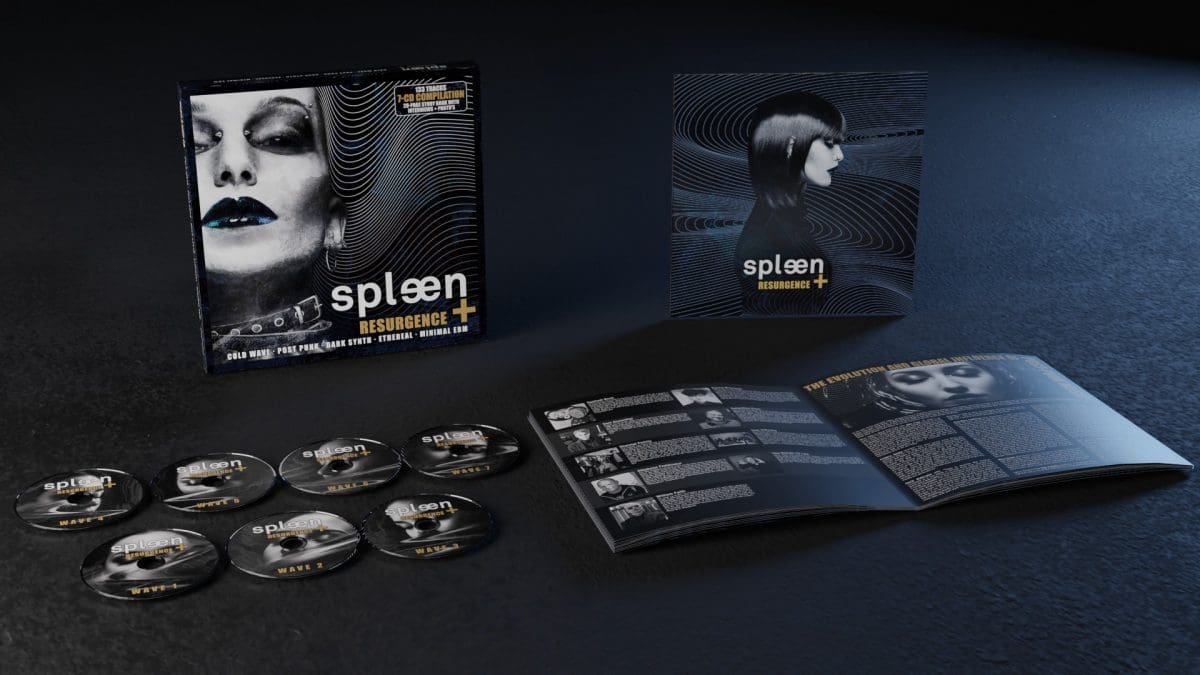‘Click Interview’ with Ruined Conflict: ‘The New Album Was Supposed To Be My Last Work In This Scene’

Set up in 2011 by Xavier Morales, Ruined Conflict got rapidly signed to Infacted Recordings. The electro/future-pop style directly reminded to VNV Nation, but aside of any further comparison, Ruined Conflict also revealed great composition skills. Early 2019 saw Ruined Conflict releasing its fifth full length album entitled “Valediction”. The work remains faithful to the band’s usual sound formula, but also appears to be the most intimate and definitely most accomplished album of Xavier Morales to date. I’ve been in touch with Xavier who revealed some surprising details about this work.
(Courtesy by Inferno Sound Diaries)
Q: The story of Ruined Conflict started in 2011 and now, early 2019, you’ve released your fifth full length album. What have been according to you the main changes, evolutions and accomplishments over these years and the different releases?
Xavier: The music development has always been to push myself to a higher limit on each album no matter the outcome, whether good or bad. As a composer my goals have always been to reflect on my thoughts whether in Politics, Religion or Humanity. I try my hardest to write honestly and create the music to follow the message.
I think the music has come a long way especially in production. From the first album “ARMOR” the music and lyrics in my opinion where armature and production could of been throughout more during the final stages, but that album along with “Revolutionary Mayhem” had a lot of soul and stuck out to get attention from labels. The new album was supposed to be my last work in this scene and I planned on moving on and quitting at a going through a difficult time. I knew I had much to say and wanted to make my peace before leaving, but I had no idea the outcome would of been overwhelmingly positive.
I never held any regret on my work, but felt reaching above the level I remained in during the past years that it would seem unlikely to reach the top or success. See I became this product and lost my way trying to become someone I was not. The new album helped me realize being myself and reaching back to my roots gave me a chance to overcome the emptiness I had gained and the people around me given me a new look on what it means to be a musician and the point of why I became a musician in the first place. Ruined Conflict will continue on and I plan on developing further from where the “Valediction” album left off.
Q: Your new album “Valediction” has been preceded by the EP’s “Farewell” and “Sequencer”. I experienced “Sequencer” as your ‘hardest’ EP ever on, which you also experienced with other influences. Tell us a bit more about it?
Xavier: I use mainly Modular Synthesizers to create sound and sequences in the new music. Growing up I was a huge fan of Kraftwerk and admired everything they did. They are the reason I became such a big fan of electronic music. I wanted to add more of that classic sound in the music. The album “Triumphant” was the beginning of the analog sounds that would lead way to all the new music that we have done since then. “Sequencer” was created with a Emw Modular synth that I had accidentally patched the settings and ended up patching the LFO to a sample and hold and with the sequencer applied it made that sound that you hear in the beginning. After that the ideas basically just came along to how I would make the EP “Sequencer” onto the making of the album “Valediction”.
Q: Over now to “Valediction”. What means this fifth opus to you? What have been the main ideas you would like to accomplish (lyrical- and song wise), and what have been the main challenges of this work?
Xavier: “Valediction” is probably the most well throughout album I have made lyrically and musically. The writing of this album allowed me to release everything that was on my mind, from my path of lies to how criticism hit me hard to the point I wanted nothing to do with music or the project anymore. Once you step into the mentality that it was all about to be over you start to feel the weight lifted as you move on. This was extremely challenging for me since at the time I thought this was going to be it and I was simply going to walk away after it was over.
Emotionally this was difficult, once the song “Goodbye” was written it was that moment I just felt numb and just cold. I didn’t really know how to feel, just that I had finished and it was time to shut the studio down. I have received a second wind as our label, friends and fans reached out to this idea of leaving. I never really thought about how people would be affected or how it would affect me if I would of simply walked away. I talk a lot about achieving personal goals and never holding back on anything in our music. I felt like I needed to listen to my own lyrics and not just settle with failure or who I had become
Q: I know for a lot of artists writing and recording an album always is a very busy and stressful job so holding the album in your hands must feel like a relief. What’s your personal experience about it and can you briefly resume the different stages and difficulties you’d to gone through?
Xavier: Writing an album for any musician is challenging and a long process. I normally begin with writing lyrics and then singing the melody in my head and thinking of what sounds I would need to create to fit the lyrics. Many have different ways of creating music this is just how I create it.
The mood of the music is the second thing that is challenging when creating any album. We all want it to perfect even though a lot of time the music can swing into something else, at that point is when making the album gets frustrating and I start the changing process. The album the music varies in different styles of music, but somehow I feel that I all still sat well during the last stages.
I think most musician can tell you the worst part is not really making the tracks, but mixing and mastering to make the album whole and sit well from beginning to end. I have adapted well after years of developing the proper skills for mixing and mastering but even then it still become a challenge.
Q: You last year got featured at the “Funeral Of Love”-EP by German artist Elektrostaub. How do you look back at this experience and is it something you maybe would like to accomplish for Ruined Conflict?
Xavier: I work with as many musicians as I can whether well-known or local to me it is very enjoyable to do any separate project outside of my own. I have a large number of remixes and features, but this “Funeral Of Love” was different of my ordinary work, which is why I enjoyed it. Plus a lot of bands were involved and that to me is the most important thing there is. The more musicians that work together the more the scene grows and excitement happens. Eventually I would like to do something similar with Ruined Conflict and I think that time will come.
Q: I noticed most critics always link your music and your timbre of voice to VNV Nation. Ronan Harris is a real reference to get compared with, but at the other side it also must be a bit boring for you, right? What’s your real feeling about it and where do you place Ruined Conflict when it comes to music genre and other bands sharing similar influences?
Xavier: At first I didn’t really care or mind it since I was new and I knew criticism comes with the territory of music. After a while it just seem like no matter what I did the name just remained like a cloud over my head. I guess now more and more people realize this is just how I sound and know I’m not trying to sound or imitate anyone. I think as long as I remain Ruined Conflict we will always be linked to VNV Nation. I mean it could be worst I could of been compared to NickelBack. Ronan is a highly respected figure in this scene, and I am sure he knows I am my own person and I will always be myself no matter what gets said about me. This is just part of the job being in the music industry.
Since you’re here …
… we have a small favour to ask. More people are reading Side-Line Magazine than ever but advertising revenues across the media are falling fast. Unlike many news organisations, we haven’t put up a paywall – we want to keep our journalism as open as we can - and we refuse to add annoying advertising. So you can see why we need to ask for your help.
Side-Line’s independent journalism takes a lot of time, money and hard work to produce. But we do it because we want to push the artists we like and who are equally fighting to survive.
If everyone who reads our reporting, who likes it, helps fund it, our future would be much more secure. For as little as 5 US$, you can support Side-Line Magazine – and it only takes a minute. Thank you.
The donations are safely powered by Paypal.











